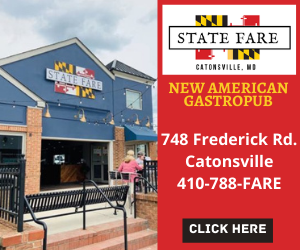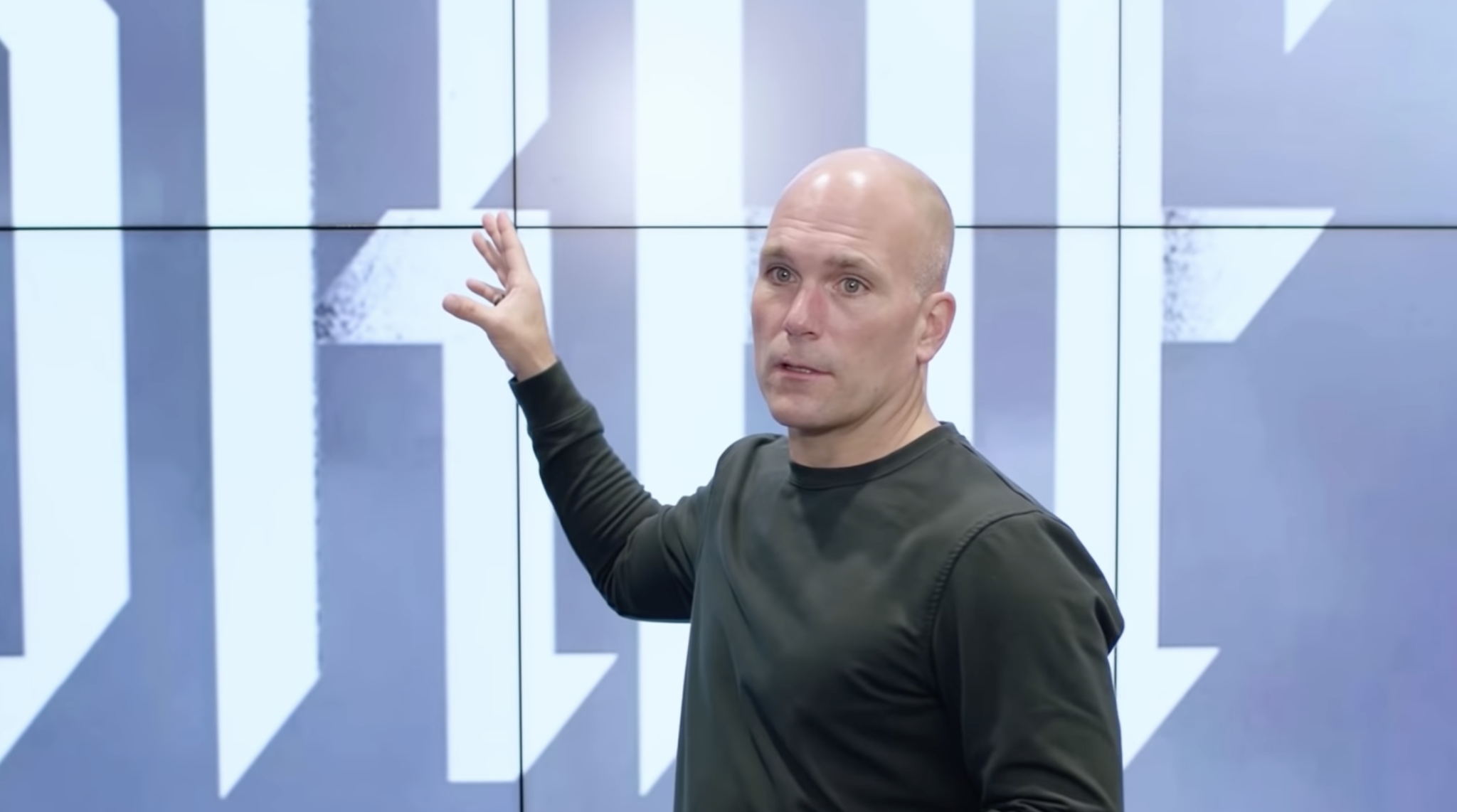strategy to sell the Orioles:
Some baseball insiders suggest that despite the fierce objections Angelos is raising, he won’t fight to the bitter end. More likely, they say, he will negotiate a deal with MLB that could exceed $100 million and then unload his disappointing team.
Angelos already may be contemplating his exit. In the past six weeks, he has spoken with a friend and potential investor about selling the Orioles. The meeting with Raymond A. “Chip” Mason, chairman and CEO of Baltimore-based brokerage Legg Mason Wood Walker Inc., was “merely a conversation,” Angelos cautions. Adds Mason: “I wouldn’t say something serious is going on.” Not yet, anyway.
As late as May 20, 2004, MLB once again cooled the talk of an Expos move to D.C. with a story in The Washington Post that quoted MLB chief operating officer Bob DuPuy: “From day one, [Selig] has stated . . . that he has grave concerns about the impact that locating a franchise in a particular community might have on other franchises in other communities. And obviously putting a team in Northern Virginia or Washington would have an impact on the Baltimore franchise and the commissioner has expressed his concerns about that.”
Meanwhile, Northern Virginia was readying its play for the Expos as D.C. mayor Anthony Williams was trying to find land inside and financing inside the District to house a new team near the Anacostia River.
By the summer of 2004, Angelos went on the open attack to protect the Orioles and keep baseball out of Washington, D.C. even as his team under new manager Lee Mazzilli was faltering in the standings and even as he was allegedly trying to “recruit” more D.C. baseball fans to his franchise, which was standing directly in the way of the region having its own team.
The Washington Post went on the political warpath in the most political market in the world to make sure the district got its full lobby exposed – and more than faint threats in regard to the legitimacy of MLB’s antitrust exemption – regarding why the Expos should be moved to Washington, D.C.
On Sunday, June 27, 2004, The Washington Post went on a full journalistic offensive with MLB commissioner Bud Selig, thoroughly embarrassing him in a fully sourced piece penned by Steve Fainaru. It exposed all of his filthy business dealings with the state of Wisconsin in corralling a new stadium as an exit strategy for his ownership of the Milwaukee Brewers.
It was the first of a three-part series entitled: “The Last Cartel: How Baseball Does Business?”
Former Wisconsin governor Tommy G. Thompson said in the interview that Selig provided misleading financial information to get the Milwaukee stadium built and then broke promises to use the increased revenue to make the Brewers competitive.
“There were just so many misleadings and mischaracterizations,” said Thompson, who had become the Secretary of Health and Human Services in the Bush administration at that time.
The newspaper said Selig, in turn, accused Thompson of reneging on a promised $50 million loan in what he called a “Machiavellian” reversal by the former governor. Bob DuPuy, who was both Selig’s personal attorney and No. 2 in the MLB offices, called the charge that Selig misrepresented the Brewers’ true financial picture to the state “a patent lie.”
The Washington Post summed up the 2004 politics of moving the Montreal Expos:
Selig, as commissioner, has singular control over “relocation,” as the process is known inside baseball. His hand-picked relocation committee consists of DuPuy; Brewers Chairman Wendy Selig-Prieb, the commissioner’s daughter; longtime Selig ally Jerry Reinsdorf, owner of the Chicago White Sox; Texas Rangers owner Tom Hicks; consultants; and MLB staff. Although a 75 percent vote of baseball’s 30 teams is required before a team can move, no vote will be taken until Selig knows the outcome, according to baseball officials familiar with the process.
Selig’s price in Washington is the same as it was in Milwaukee: a state- of-the-art publicly financed ballpark. No stadium, no team. But to at least one Wisconsin official, Miller Park is a cautionary tale.
“I would be very, very nervous if I was a taxpayer in the Greater Washington, D.C., area,” said state Sen. Michael G. Ellis (R), the former majority leader and a Selig critic. “Nobody is better equipped to show people how to fleece the taxpayers into building them a new stadium than Allan H. [Bud] Selig. He could write a textbook on how he committed the taxpayers of Wisconsin to build a stadium at no cost whatsoever to the Seligs.”
Selig stated the obvious when he said the continent-wide search for a new home for the Expos was dragging: “This thing has taken longer than it should have. But it’s been almost to our advantage in a way. It’s given the cities applying a chance to get their houses in order a little more.”
The Washington Post spent three days examining the lore and lure of Washington baseball. The pieces were harshly accurate at every level and painted an unflattering picture of a greedy, power-soaked Selig and all of The Lords of Major League Baseball in driving what was essentially a monopolistic endeavor with the impunity of the antitrust laws, which they kept in place by funding politicians who supported their cause.
The Washington Post reported:
Beyond its romantic history and symmetrical genius, baseball is fundamentally a government-sanctioned cartel — defined in the dictionary as a group of businesses that maintain a monopoly. It is protected by a 1922 Supreme Court decision that exempts the sport, uniquely, from antitrust laws. It is led by Selig, whose status as both team owner and commissioner would violate conflict- of-interest rules in all the major professional sports leagues — the National Football League, the National Basketball Association and the National Hockey League.
Selig, who assumed the responsibilities of commissioner in 1992 — and was elected permanent commissioner in 1998 — has made construction of ballparks the centerpiece of his business strategy as baseball’s chief executive officer. His aggressive personal lobbying, including direct and implied threats, has helped baseball obtain $3.22 billion in public subsidies for 15 new or renovated ballparks — including his own — over the past 12 years.
Once again, MLB’s unique antitrust exemption became a hot button for debate within the framework of how Selig controlled the Expos and the marketplace.
Without baseball’s antitrust exemption, a major league team could move into Washington or Northern Virginia without baseball intervening. With it, the Baltimore Orioles, who have sought to block such a move, enjoy a monopoly over a region encompassing 7.6 million people, the fourth-largest consolidated metropolitan area in the United States after New York, Los Angeles and Chicago.
Without the antitrust exemption, “they’d all be in jail — it’s real simple,” said Spencer W. Waller, director of the Institute for Consumer Antitrust Studies at Loyola University in Chicago. “I’m not saying that people in baseball are evil or immoral, but because of antitrust laws they act like any rational monopolist would act in raising price, restricting output and limiting innovation. It’s more of what a rational cartel would do than a monopolist.”
The Washington Post also revealed every lingering issue regarding Selig’s ability to get a stadium built in Wisconsin and implied that he had quieted the local newspaper, The Milwaukee Journal, by currying favor with the chairman, Robert Kahlor, and placing him on the stadium committee. A former editor at the newspaper claimed the paper had no credibility in writing about anything regarding Selig, the Brewers or MLB because the publication’s writers had no authority to write the truth.
On Day Two of the series, Fainaru once again went after Selig on the …
































